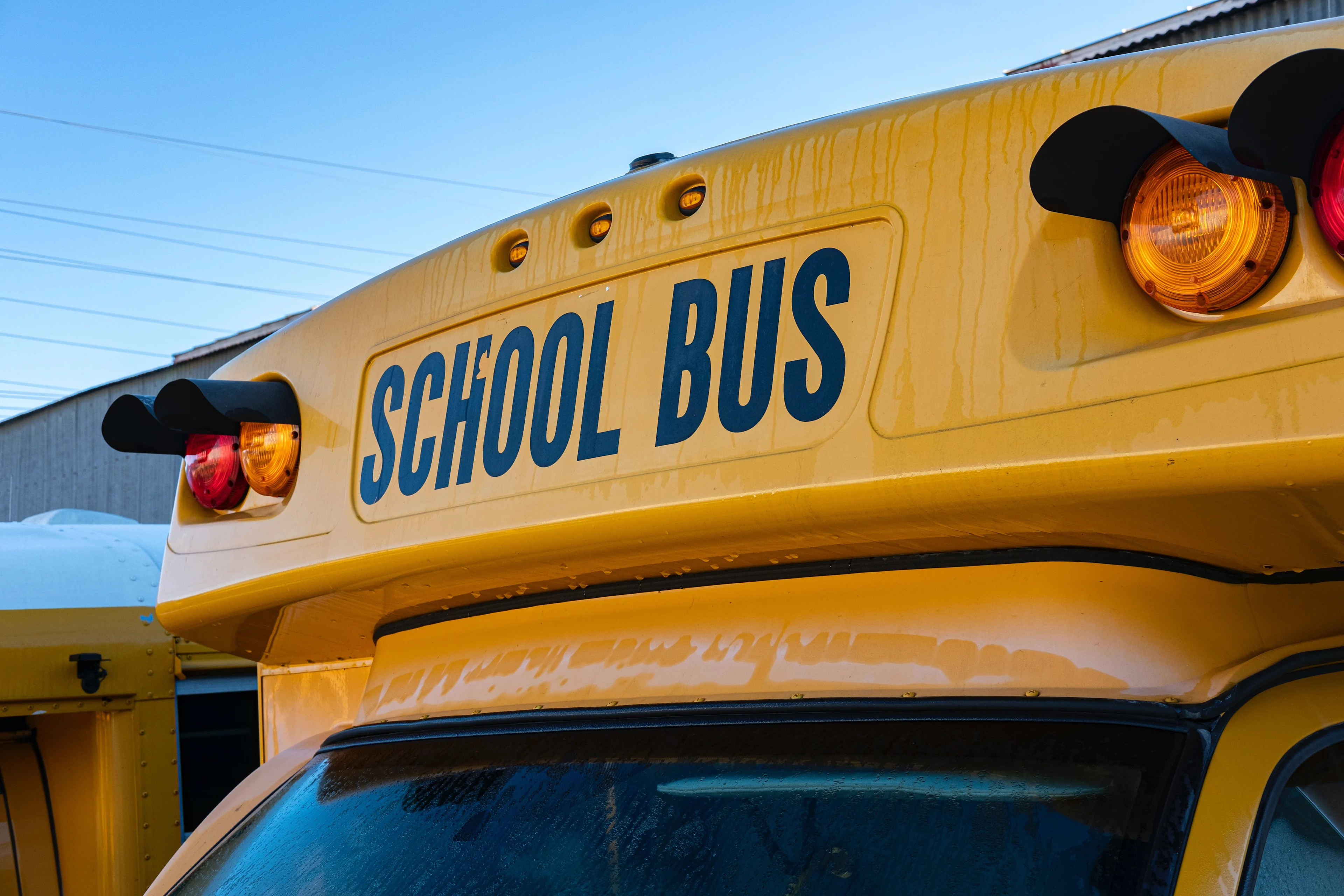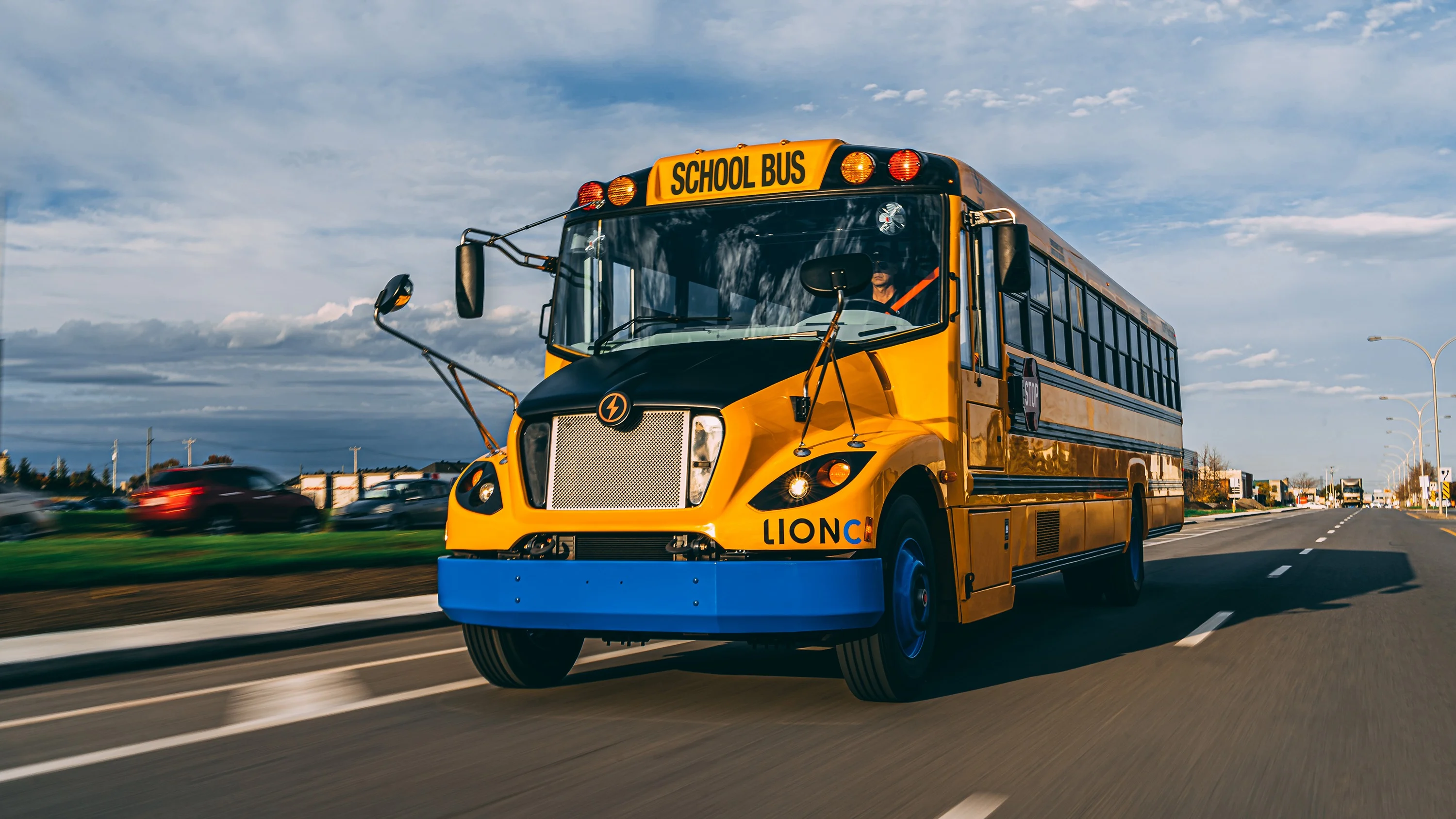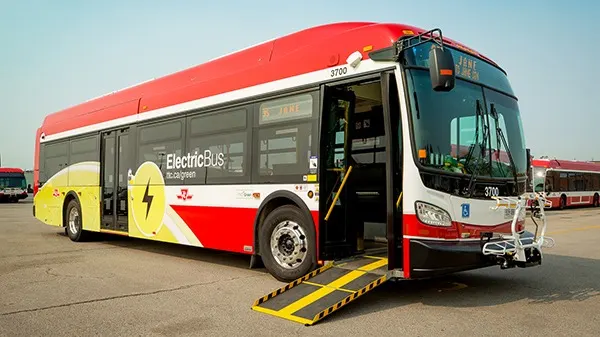
Long ride ahead for Canada’s transition to electric school buses
Diesel school buses are known to be poisoning the children who ride them, but Canada is slow to make the transition to EVs.
Riding a school bus may be the most unhealthy part of a child’s day.
Diesel-powered school buses spew toxic fumes that can seriously harm a child’s health, and interfere with their learning, according to children’s health advocates.
Canada needs to shift to all-electric school bus fleets to protect the health of children and local communities, says the Canadian Partnership for Children’s Health and Environment (CPCHE), a coalition of 34 organizations.
“By switching to electric school buses, we can help our children thrive physically and intellectually,” Erica Phipps, executive director of CPCHE, told The Weather Network.
This will also protect the environment for generations to come with a very visible action on climate change, Phipps added.
Follow The Weather Network's climate coverage on Instagram here
The vast majority of Canada’s 50,000 school buses use diesel fuel while ferrying roughly 2.2 million children to and from school. Fewer than 200 buses are currently electric, including a lone EV that just started operating in Saskatchewan, and 80 in P.E.I built by Quebec’s The Lion Electric Co. Lion is the only purpose-built all-electric Type C school bus manufacturer in North America.

LionC electric school bus. (Lion)
Health impacts
Pollution levels on diesel school buses often exceed surrounding areas by five to 10 times, according to U.S. research. Diesel exhaust includes very fine particles of carbon and a mixture of toxic gases, and is carcinogenic, according to Health Canada.
When University of British Columbia researchers exposed adults to diesel exhaust similar to street levels, they found it reduced the test subjects’ attention spans and fogged their memories within two hours of exposure. The impacts were temporary but demonstrated how air pollution can affect our brains.
“Children are far more sensitive to pollutants than adults. We’ve known for a long time that air pollution from traffic has a wide range of health impacts on kids,” Dr. Samantha Green, a Toronto family physician and president-elect of the Canadian Association of Physicians for the Environment (CAPE), told The Weather Network.
WATCH BELOW: Risk of dementia linked to traffic pollution
A 2022 study by CAPE found that transportation-related air pollution exposure led to reduced lung function, asthma incidence, and prevalence among children. Other studies have found a startling array of health impacts on adults including respiratory and cardiovascular diseases, neurological impacts, cancers, diabetes, eczema, and noise-related afflictions including insomnia, anxiety, and depression.
In addition, air pollution is responsible for one in seven premature deaths worldwide.
Mapping a new route forward
Replacing noisy, polluting diesel school buses with quiet, clean-running electric models should be a “no brainer” Green said.
But beyond better health and academic outcomes for kids, as well as cleaner and quieter schools and neighbourhoods, there are other benefits: electric buses can also provide a backup power source in emergencies. P.E.I. will use its newly-electrified school bus fleet as mobile emergency batteries during natural disasters, like post-tropical storm Fiona.
Surveys show the vast majority of kids are worried about climate change, and very distressed by the lack of action. This transition to EVs can be a way to show children and teenagers that governments and school boards are taking action on the climate crisis.
READ MORE: Why these moms are fighting to electrify school buses
Recently CAPE, along with other members of the coalition, called on decision-makers to support policy and funding measures that support electric bus procurement, operation, and infrastructure.
School bus fleets are normally operated by private contractors such as First Student, which operates 44,000 school buses in Canada and the U.S.

One of the Toronto Transit Commission's electric buses. (TTC)
Toronto’s public transit agency — which, in pre-pandemic times, saw over 25 million rides by children under 12 annually — has a fleet of approximately 2,000 diesel buses. However, 336 electric-hybrid buses will be in service by the end of this year, saving $6.8 million a year in diesel fuel costs, according to the Toronto Transit Commission (TTC). In 2025, the TTC will only purchase zero-emission buses to replace their diesels.
Costly transition or costly inaction?
Lack of awareness of the dangers of air pollution and benefits of electric buses are two main reasons there are so few electric school buses in service, according to Pollution Probe senior director Steve McCauley.
Electric school buses also cost considerably more to purchase and to set up the necessary charging infrastructure. That said, there are considerable operational savings according to McCauley.
“The feedback from the operators of P.E.I.’s electric school buses has been very positive,” he told The Weather Network.
There are funding sources, but they do not cover the full cost. For example, the Government of Canada’s Zero Emission Transit Fund offers $2.75 billion over five years to help public transit and school-bus operators electrify their fleets, including buying zero-emission buses.
The Canada Infrastructure Bank said last week it would invest $62 million to help Durham Region Transit purchase 98 fully electric buses. The investment covers the cost difference between diesel and electric buses, and is part of a $1.5 billion commitment under the Zero Emission Transit Fund for more than 5,000 zero-emissions buses.
“Given what we know about the child health effects of diesel exhaust and the risks posed by climate change, switching to an all-electric school bus fleet should be an obvious choice nationwide to protect the health of children, now and into the future,” said Phipps.
Thumbnail image: Yellow school bus under blue sky. (David McElwee/Pexels)











